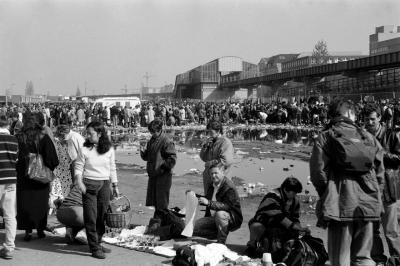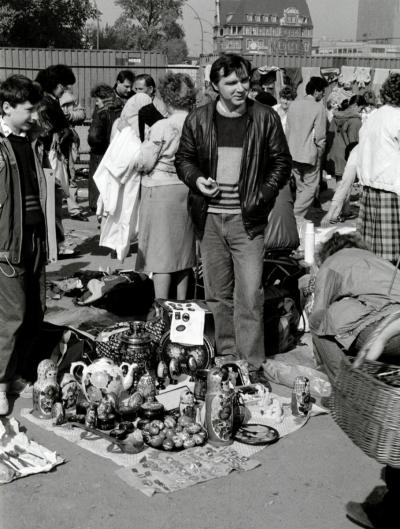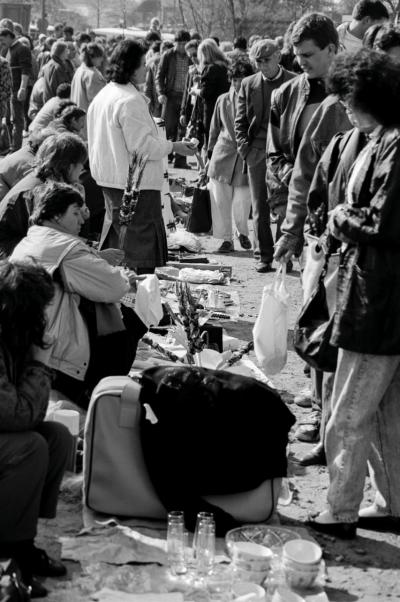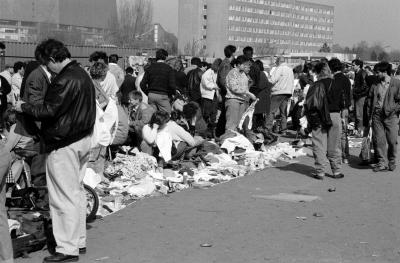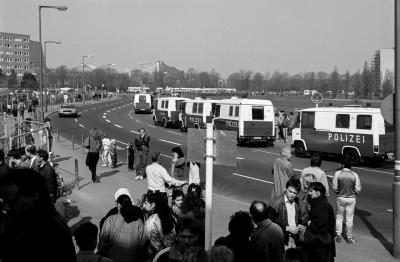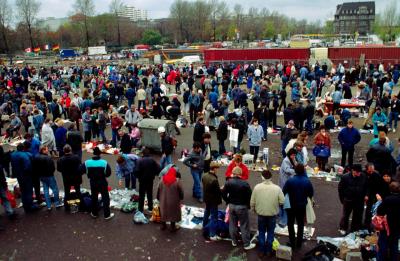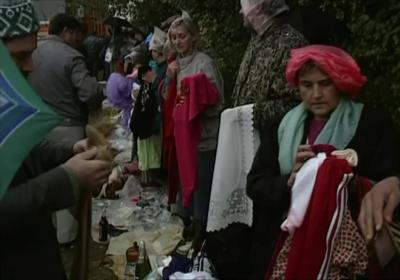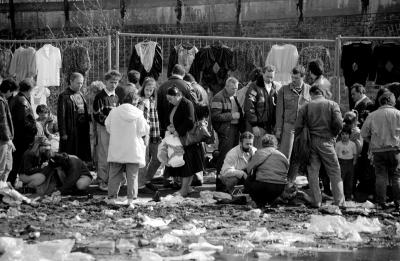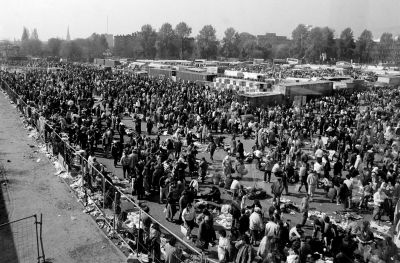The “Polenmarkt” at Potsdamer Platz in Berlin

The gathering of tens of thousands of people (some sources even speak of one hundred thousand) had an extremely negative impact on the environment. Since there were no public toilets in the area, the entrances to the surrounding houses quickly stank of faeces. The market was like a huge refuse dump, with rubbish accumulating in the nearby parks. Prostitution flourished in the side streets and vehicles. At the same time, there was an increase in the number of shoplifting crimes and cars stolen by Poles. Berliners were also disturbed by the way in which food was sold directly from cardboard boxes and newspapers on the ground. "As a result, it wasn't so much the trading itself and what was sold on the Polish market that began to turn the otherwise tolerant Germans against them. This tolerance then turned into anger, which then gradually turned into hostility."[3]
Constant violations of the law and disregard for sanitary regulations inevitably led the city's inhabitants to make increasingly loud demands on politicians to keep the market in order. Every Monday, the Berlin newspapers vied with each other in assessing the numbers of illegal traders from Poland who had been found guilty of illegal trafficking and crimes at the weekend. Politicians of all parties warned against the creation of “Polish slums”. German owners of small shops who were in fear of competition from cheap goods also protested against the Polish market. They were supported by animal rights activists who warned people against buying parrots, dogs and cats.
However, the attempt to stop the illegal trade was like a Quixotic fight against windmills. Nothing helped: neither the closing of access roads to the market nor the erection of signs in Polish telling them about the ban on sales. After the market area had been fenced off, traders moved on to the vicinity of the Philharmonic Hall until, after several such spontaneous moves, the market finally returned to its old location. Speedy criminal proceedings were launched against dealers arrested by the police. Customs officers stamped their passports with a three-year ban on entering West Berlin. In the first few months of trading on the market alone, 3,171 persons received such entries in their papers. Criminal proceedings were initiated against 4,500 persons.[4] However, these measures were of no significant benefit, since many traders simply reported the loss of their passport to the Polish authorities and applied for a new one to enable them to travel back easily to West Berlin.
All this had a negative effect on the image of the Poles, with the result that the Germans' attitude towards the arrivals from the other side of the Oder suffered. Until then, Berliners had looked respectfully towards Poland, since it was not so long since the Poles had attempted to regain their freedom and the Germans had given them intellectual and material support in the difficult periods of martial law and the economic crisis of the mid-1980s.
Xenophobic sentiment was also fuelled by the media. Witold Kamiński from the Polish Social Council in Berlin, who at the time worked with the Berlin authorities and services on the Polish market recalls that “Articles in the Bild-Zeitung and the Berliner Zeitung about the Polish market mentioned things like the danger of epidemics, reminsicent of writings on the ghetto walls during the Second World War. We tried to shed some light on the phenomenon from a different perspective by showing the Germans that trading is never one-sided,” he said.
In practice, the Polish market also helped Berliners to earn money. Poles spent their hard-earned money on the market in discount supermarkets like Aldi, and stores selling electronic products made in Asia. The rush for video recorders, cameras and tape recorders was so great that despite the fact that one electronics store after another began to open on the Kantstrasse in Charlottenburg where many Poles were buying up articles, there was scarcely any reduction in the long lines of customers.
